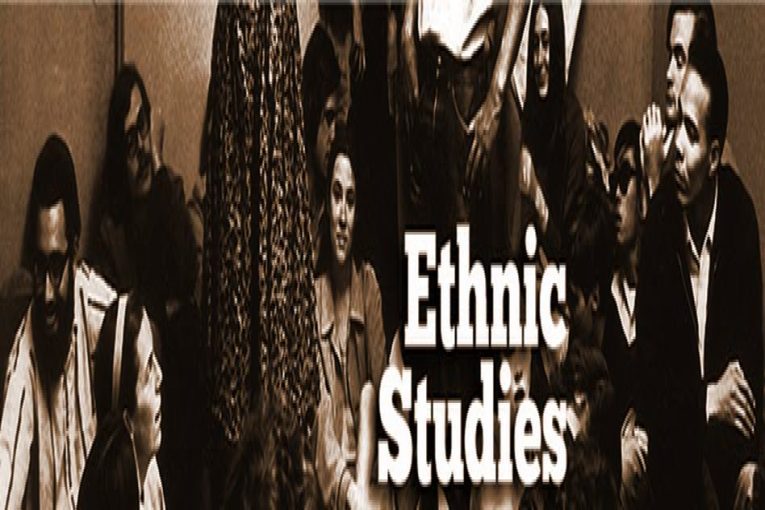
California Teachers Association (CTA’s) opposition letter in regards to AB2918 was sent to the California Legislature on August 2nd, 2024, however it has not been made available to the broader public, until now. Below is the text from the letter, and attached here is the opposition letter in full.
SUBJECT: AB 2918 by Assemblymembers Zbur and Addis
POSITION: Oppose
Dear Senator Caballero:
The California Teachers Association respectfully opposes AB 2918 (Zbur/Addis) which creates burdensome barriers for our public schools regarding development an Ethnic Studies course. Our organization sponsored a bill three years ago which established a new Ethnic Studies graduation requirement commencing with students graduating high school in the 2029–30 school year. Ethnic Studies is paramount to our organization, widening cultural awareness and strengthening knowledge of the foundational ideals of equality upon which democracy is built. We firmly believe that the inclusion of Ethnic Studies in our schools is critical to the educational experience every student deserves. Ethnic studies are the result of a 50+ year struggle, wherein communities of color, students, and educators have pushed for a curriculum that more closely reflects the history and culture of California’s diverse population.
Unfortunately, this bill adds unnecessary bureaucratic layers and cumbersome compliance mechanisms that single out Ethnic Studies and could prompt districts to seek waivers.
Moreover, the requirement that any revisions to the curriculum must be approved suggests a level of control that is unprecedented in other academic disciplines; this could stifle innovation and responsiveness in curriculum development, placing unnecessary constraints on educators. Some specific concerns surrounding the language in the bill include:
- Unnecessary Obstacles to Implementation – School districts already must follow the law, so requiring the Superintendent and the School Board to send a signed certification that they are following Ethnic Studies law is duplicative and creates unnecessary red tape for our schools. Additionally, calling out a need to certify that approved contracts for developing a high school Ethnic Studies course follow the law is an unnecessary obstacle to implementation that no other discipline or course is required to complete. The bill suggests a notice be sent to parents and guardians to inform them of the Ethnic Studies course development process that will be undertaken, how to participate in the development process, and how to provide feedback; these notifications represent the current practice. At a time when we should be coming together to celebrate implementation of the only high school course that centers and emphasizes people of color telling their stories, codifying this process is unprecedented, unnecessary, and it contributes to the very structural inequities Ethnic Studies courses have the potential to dismantle.
- Overly Prescriptive – Developing an Ethnic Studies course with required constituency poses challenges in many areas. For instance, a one-school district up north with only four teachers, where most don’t teach ethnic or social studies, may lack relevant community stakeholders. We appreciate that the author agreed to take an amendment into the bill to ensure that a majority of teachers have a seat at this course development table, but current laws already require substantial teacher involvement and promote community participation in selecting instructional materials. Mandating such rigid committee composition for course development could be difficult across our diverse communities in California.
- Undermines Successful Programs – There are four ways a student could complete the Ethnic Studies graduation requirement: (1) a course based on the model curriculum that was developed by the Instructional Quality Commission, or (2) an existing ethnic studies course, or (3) an ethnic studies course taught as part of a course that has been approved as meeting the A–G requirements of the UC or CSU, or (4) a locally developed Ethnic Studies course. The Ethnic Studies model curriculum approved by the State Board of Education has already been vetted and does not need a newly defined stakeholder team to develop an Ethnic Studies course or new guardrails. Similarly, an existing Ethnic Studies course has already been serving students and does not need a newly defined stakeholder team to develop the course or new guardrails. Adding additional barriers could undermine successful programs by creating unnecessary obstacles that hinder Ethnic Studies implementation. These barriers can stifle innovation and limit the program’s ability to adapt and meet the needs of our students effectively.
- Exposure to Disruptions – Forcing individuals and organizations to be a part of the curriculum development process that may have no expertise in pedagogy may dilute quality and disrupt learning. An unintended consequence of this proposal may lead to suffocating scrutiny of any decision Ethnic Studies educators make or practice they put into place. Forcing outside influence into the Ethnic Studies course development process may also result in excessive public records requests and dangerous threats against school board members and educators, especially in areas of the State where we have witnessed increased disruption and extremism.
CTA believes that we have a duty to provide an inclusive curriculum to youth about their ancestral legacies. It is the right of all students in California to have access to quality Ethnic Studies curriculum. Ethnic Studies is vital to the future of our communities and our students deserve a curriculum that is developed and adopted with fidelity, free of unnecessary barriers and bad faith actors who seek to undermine the entire goal of Ethnic Studies. Educators must be free to think and to express ideas, free to select and employ materials and methods of instruction, and free from undue interference by any individual or group. For these reasons, we respectfully request your NO vote on AB 2918 when it is heard in the Senate Appropriations Committee.